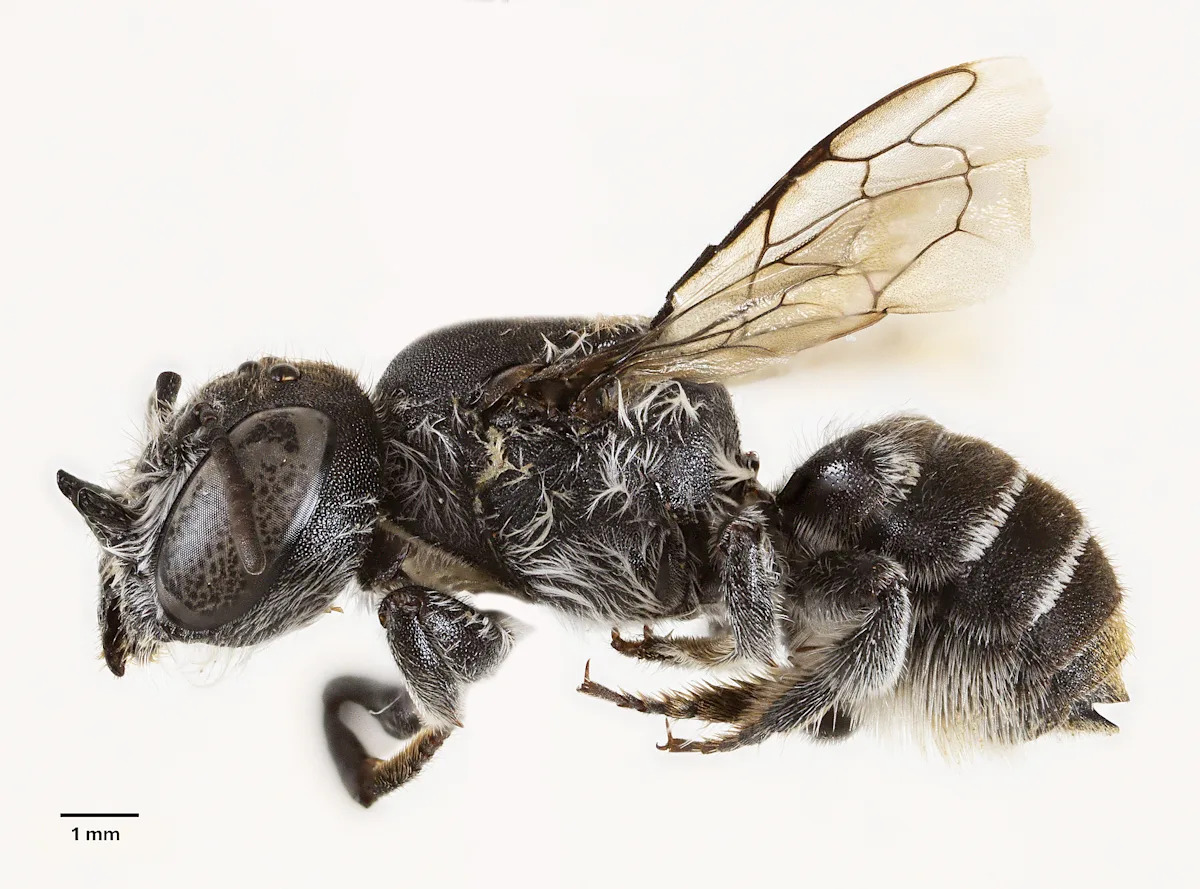Home / Science / Rare "Lucifer" Bee with Demon-Like Horns Discovered in Endangered Australian Ecosystem
Rare "Lucifer" Bee with Demon-Like Horns Discovered in Endangered Australian Ecosystem
12 Nov
Summary
- Scientist discovered a new bee species with distinctive "demon-like horns"
- The bee was found while surveying a critically endangered wildflower in Australia
- The new species was named Megachile Lucifer, with the "Lucifer" name referring to the horns

In 2019, a scientist in Australia made an exciting discovery while surveying a critically endangered wildflower - a new species of native bee with distinctive "demon-like horns." Kit Prendergast, a native bee researcher, spotted the unusual insect and later determined it to be a previously undescribed species.
After collecting the bee and examining it under a microscope, Prendergast and her co-author decided on the fitting name Megachile Lucifer, with "Lucifer" referring to the horns that project upward and outward from the female bee's head. The function of these horns is currently unclear, but Prendergast speculates they may be used for accessing flowers, competing for resources, or defending nest sites.
The discovery of this new bee species is significant, as Prendergast notes that finding an undescribed native bee in Australia is relatively common due to limited funding and taxonomic research in this area. However, it is more unusual to come across a species that has never been collected before. DNA testing confirmed that Megachile Lucifer does not match any known bees in existing databases.
The Bremer Ranges region in Western Australia, where the new bee was found, faces threats from gold mining and climate change. Prendergast and her team are calling for the area to be formally protected as conservation land to prevent further habitat loss. They believe Megachile Lucifer is likely range-restricted and reliant on the native vegetation, making it potentially vulnerable. Ongoing surveys will be crucial to better understand the distribution and conservation needs of this unique "Lucifer" bee.




